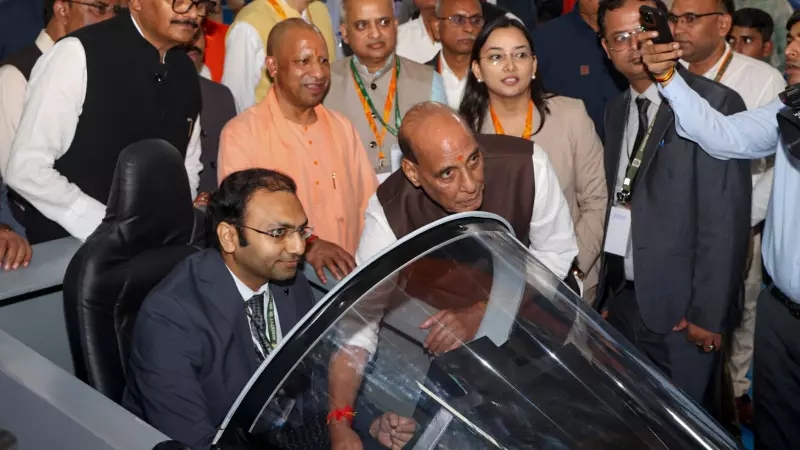
In a significant strategic development that strengthens India's defensive capabilities, Defence Minister Rajnath Singh announced that the formidable BrahMos supersonic cruise missile system now possesses the range to strike targets anywhere within Pakistan.
The revelation came during the Defence Minister's address at a ceremony in Lucknow, where he emphasized India's commitment to maintaining "minimum credible deterrence" while adhering to its "no first use" policy for nuclear weapons.
Enhanced Strike Capability
The BrahMos missile, a joint venture between India and Russia, has undergone substantial range enhancements in recent years. Originally limited to 290 kilometers, the missile's strike capability has been progressively increased, with successful tests demonstrating ranges exceeding 400 kilometers and even up to 500 kilometers in some variants.
This extended range effectively places all major strategic locations across the border within India's reach, marking a pivotal moment in the nation's military preparedness.
A Message of Deterrence and Peace
Minister Singh carefully balanced his announcement with reassurances about India's peaceful intentions. "Our aim is not to threaten any nation but to ensure our security concerns are adequately addressed," he stated.
He reiterated India's longstanding nuclear doctrine, emphasizing that while the country maintains a credible deterrence, it remains committed to no first use of nuclear weapons and continues to advocate for global nuclear disarmament.
Strategic Implications
The range enhancement of the BrahMos missile represents several critical advantages for India's defence strategy:
- Deep Strike Capability: Ability to target strategic installations deep inside Pakistani territory
- Enhanced Deterrence: Significant upgrade to India's conventional strike capabilities
- Technological Superiority: Demonstration of India's growing missile technology expertise
- Rapid Response: The supersonic speed of BrahMos reduces reaction time for targeted systems
The Defence Minister's announcement comes at a time when regional security dynamics remain complex, with India continuously working to modernize its armed forces and maintain strategic equilibrium in South Asia.





